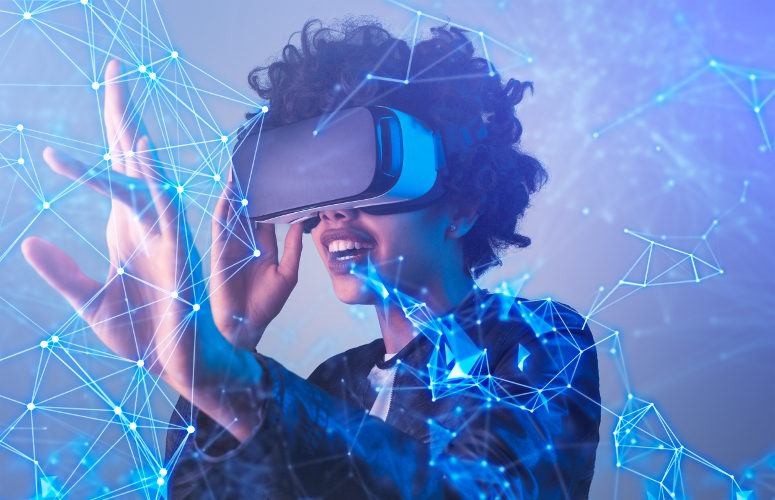By Metohuey Adoglo
Augmented reality (AR) and virtual reality (VR) technologies are ushering in a new era of cultural education in Africa, transforming the way communities connect with their rich heritage. By providing immersive and interactive experiences, these cutting-edge technologies are enabling Africans to delve deeper into their roots and gain a profound understanding and appreciation for their cultural legacy.
Read More: Empowering Africa: The Impact of Digital Literacy on Cultural Knowledge
One of the remarkable applications of AR and VR in African cultural education is the recreation of historical events and landmarks. Through these technologies, students and visitors can virtually step back in time and witness significant moments in African history, explore ancient kingdoms, and engage with iconic events. This approach not only captivates learners but also fosters a strong sense of connection to the past.
Another crucial aspect of AR and VR in cultural education is the preservation of endangered cultural artifacts. By digitizing delicate items and creating virtual replicas, museums and cultural organizations are safeguarding these treasures for future generations. This technological advancement is of paramount importance in Africa, where various cultural artifacts face the risk of deterioration or loss due to natural elements or human activities.
Read More: Unlocking African Culture Through Gamifying Education for Immersive Learning
Moreover, AR and VR platforms offer language learning opportunities, facilitating the immersion in African languages and dialects. This not only promotes linguistic diversity but also enhances cultural understanding and communication across different communities in the continent.
In addition to the educational benefits, AR and VR provide a platform for African artists and creators to showcase their work. Virtual exhibitions and galleries allow these talented individuals to reach a global audience, promoting African art and culture on an unprecedented scale. The opportunities for collaboration and cultural exchange are boundless.
However, challenges remain in the widespread adoption of AR and VR in African cultural education. Limited access to infrastructure, including high-speed internet and affordable devices, poses obstacles in many regions. Nonetheless, initiatives, partnerships, and grants are being pursued to address these issues and ensure equitable access to these transformative technologies.
Read More: The Intersection of Eco-Friendly Food Packaging and Technology in Africa
The integration of augmented reality and virtual reality in cultural education is revolutionizing the way Africans experience and celebrate their heritage. By bridging the gap between the past and the present, preserving endangered artifacts, facilitating language learning, and promoting African artistry, AR and VR are shaping a brighter future where cultural education is accessible, immersive, and empowering for all.
Our Story So Far. Your Dreams Matter, Your Stories Matter #DreamsTalks #AfricantechSpace pic.twitter.com/seZElwurGq
— Africanian News (@africaniannews) July 3, 2023









